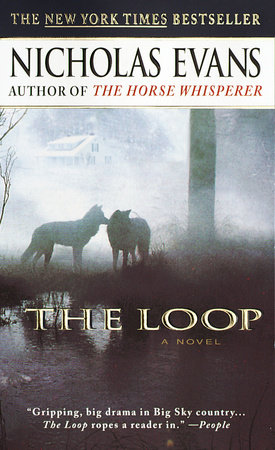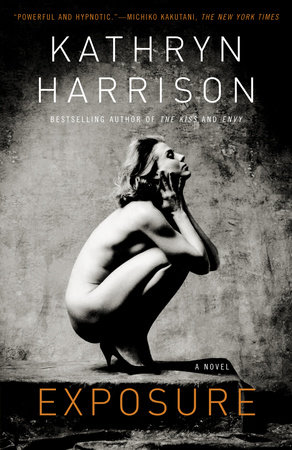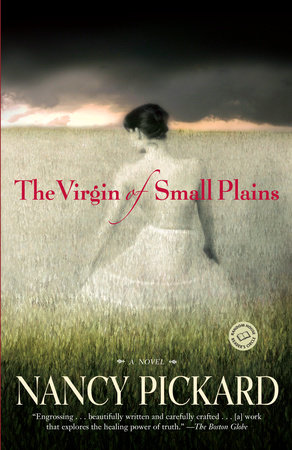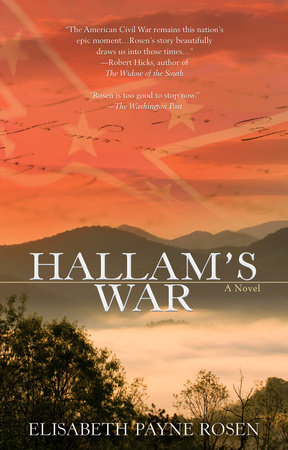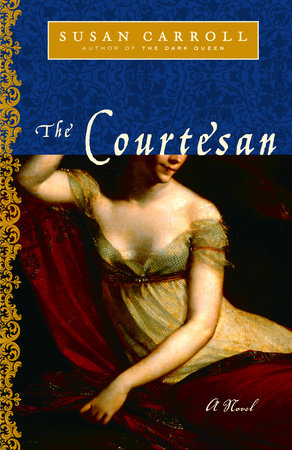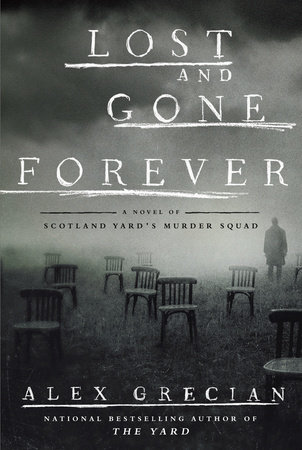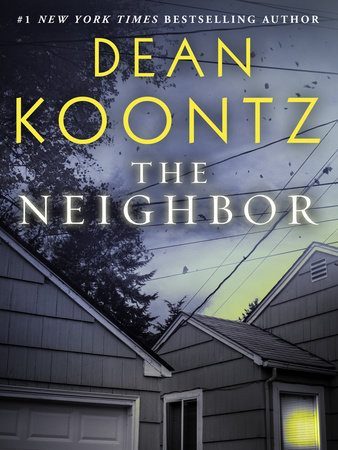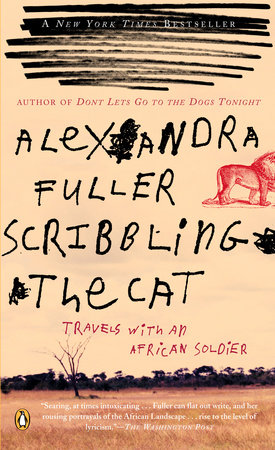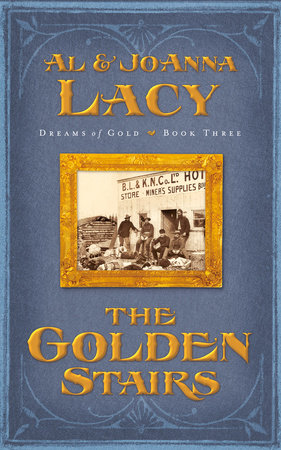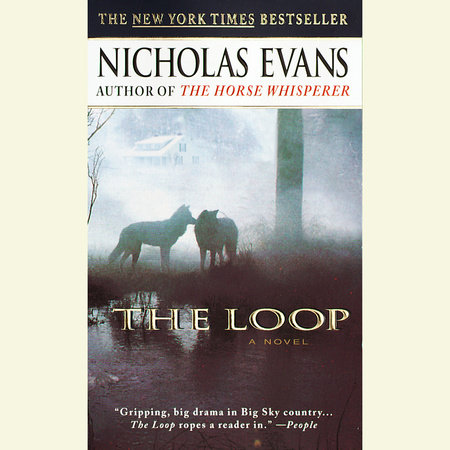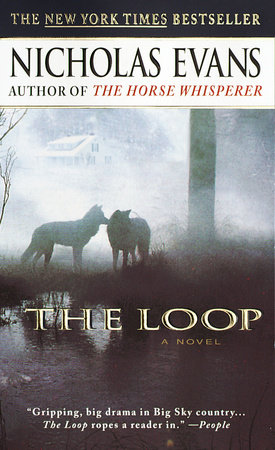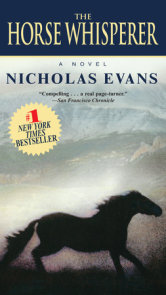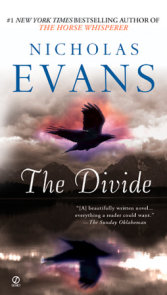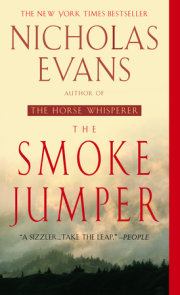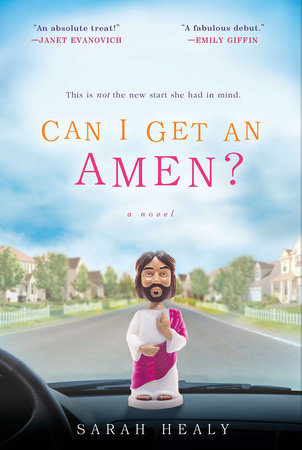Author Q&A
Following is the transcript of an online chat with Nicholas Evans that took place on Oct. 2, 2001.
Events_Moderator: Howdy, folks! For those of you just joining us, tonight we are chatting with Nicholas Evans, author of The Horse Whisperer. His new novel is The Smoke Jumper. Get those questions ready. We’ll be starting in just a few minutes!
Events_Moderator: OK everyone, here we go! Let’s welcome Nicholas Evans to this Live Event! Hi Nicholas, welcome to Lycos Live Events! How’s it going?
Nicholas_Evans: It’s fine, thank you. I’m feeling good, it’s a little late here in London, but it’s fine. Good to be online!
lisa_adams523: What prompted you to write a book about a horse whisperer?
Nicholas_Evans: About 1993 I met a blacksmith at the house of a friend in the southwest of England, in Devon. He mentioned that he’d seen a horse whisperer at work once. And though I grew up with horses and thought I knew a little bit about them, I’d never heard this term before. He told me what they were, and I started to do a little bit of research, and I became more and more convinced I was onto something. For a long while I’d been thinking of a story set in the contemporary American west, a love story perhaps. These two things just came together, I realized that the horse whisperer could be a part of this story. Then I just had to write it. But before I wrote it, I came to America to do a bit of research. I spent time with three horsemen in particular that have this almost miraculous way of working with horses.
bensturner: I have loved all of your books so far. Are you working on any new creations?
Nicholas_Evans: I only finished writing The Smoke Jumper in the summer of this year. It became a book very quickly. But yes, I am working on another idea at the moment, although I’m doing lot of promotion work for The Smoke Jumper. I already did a twelve-city tour of the United States, and on Thursday I’m off to Australia and New Zealand where the book is being published. I’ll also be going to Italy and to Holland, which is fun! Meeting lots of readers is always fun!
biobunny: I just finished the Smoke Jumper and I thought it was amazing!
Nicholas_Evans: Thank you so much! Tell your friends!
frizzy009: What is The Smoke Jumper about?
Nicholas_Evans: It’s a story, basically, about choice; about that moment in most of our lives when we have to choose between conflicting ideals, between love and honor, or between passion and friendship. It’s the story of three good people, a woman and two men, and she loves them both, but ultimately has to choose between them. But it’s also about the way we are, particularly with children, and how the adult world inflicts so much pain on children, sometimes without realizing it.
ejh13: I’d like to hear more about your experience with the smoke jumpers themselves. Firefighters of all kinds being heroes of mine!
Nicholas_Evans: I agree with you! I spent quite a bit of time with the smoke jumpers of Montana. And a couple of them have become good friends. There aren’t many true heroes in the world today, but these men and women are some of them, risking their lives almost every day of the summer. I didn’t get to jump, which frankly I was quite relieved about, but I spent a lot of late night hours drinking beer with them, which was a rather more comfortable way to research it.
ciao_bella2: Are there similarities in these professions, horse whisperers and smoke jumpers, that inspired you to write about them?
Nicholas_Evans: To be honest, I don’t think it’s possible to generalize about the professions too much, because all the individuals are so different. What the horse whisperers that I met, although none of them would call themselves that, but what they had was a kind of gentleness and an ability to understand the pain of others.
And I don’t mean just the horses. It often seemed to me that they still had a sense that all the rest of us have long ago lost. The smoke jumpers were many and varied, but I guess what they had in common was a sort of freedom of spirit, and the wish to do something with their lives that truly proved they were alive. Instead of sitting behind a desk all day like so many of us do. They are also able to exercise a lot of their own judgement when doing this work. Some troops of firefighters pride themselves on their military discipline, but a smoke jumper is never afraid to question an order if it’s wrong. And I like this independence of mind.
ejh13: I’ve given The Smoke Jumper to friends that I thought would enjoy the story. Is there a book you keep an extra copy of to give to friends?
Nicholas_Evans: I always seem to be giving away copies of All The Pretty Horses, by Cormack McCarthy. It’s one of the finest books I’ve ever read, but I’m always careful to tell people not to give up before about page thirty, because when those two boy set off on their horses, it just lifts your heart away with them. The other book that I have given many copies away of is Pat Conroy’s The Prince of Tides. And I suppose looking at more classical stuff, Tess of the D’Urbervilles remains a constant favorite.
Mark: Who are the best young authors in the UK today?
Nicholas_Evans: That’s a very difficult question to answer. There are a lot of writers that seem to be fashionable at the moment, and among them, some very good ones.
People like Nick Hornby, Tony Parsons. But actually I tend to read more American fiction than English at the moment. I find sometimes that the new English fiction is a touch parochial. A book that I’m in the middle of at the moment and loving is called Peace Like a River by a newcomer by Leif Enger. I’d recommend it to anyone.
CaptainJ: Smoke jumping isn’t a common job or vocation. What inspired you to write a book about it?
Nicholas_Evans: I seem to get my ideas when I’m researching the previous novel. I got the idea for my second book, The Loop, when I was researching The Horse Whisperer. And when I was researching The Loop, I had the idea for The Smoke Jumper. I was driving down to Missoula, Montana from the Nine Mile Valley where I’d been with a wolf biologist, radio tracking a pack of wolves, and I saw a road sign. It said simply Smoke Jumpers. At the time, I wasn’t enough of a Montanan to know what they were or what this meant. In fact, I was so busy looking at the sign that I nearly drove into the back of a police car that had stopped in front of me. I swerved to avoid him and sure enough his lights came on and he stopped me. He gave me a warning ticket for making an improper pass. I have it framed on my wall. It shows the exact date I had the idea, April 17, 1996. At the time, I was going through quite a turmoil in my private life, and this idea of someone jumping into the flames — after someone explained to me what smoke jumpers were — had an appeal. I was trying to decide to jump into the flames to end a long relationship. And slowly the story, but not my story, came together. Fire as a metaphor was an idea, and I started to read and think about it. Fire does so many contradictory things. On the one had, it destroys and kills, and if you survive it scars you. But on the other hand, it purifies. If you go to a place that a forest fire has passed through only a year ago, you’ll see this amazing new growth. There are certain trees and plants in the West of the United States that can only reproduce in the extreme heat of a forest fire. And flowers that were thought to be extinct suddenly show up again. In a way, it was the ultimate metaphor for a story.
biobunny: What did you think of the movie interpretation of The Horse Whisperer?
Nicholas_Evans: I still feel very fortunate that somebody of Robert Redford’s stature and sensitivity should have wanted to make the movie, and I thought he did a pretty good job. Of course, when you’ve created all of these characters and images and places in your own head, it’s very hard when somebody serves up an entirely new set of images. You somehow feel that they’ve got it wrong. But putting that aside, I thought he captured, in a very moving way, the healing process. And the work with the horses was astonishing. He had, incidentally, one of the horse whisperers that I spent time with, working on the movie. A wonderful horseman called Buck Brannaman. The ending of the movie, of course, was different from the book, and in all honesty, I didn’t like it much. The ending of the book requires that the horse whisperer, who is a kind of angel in one sense, to move on in order that the healing can be completed. The ending is full of hope. But in the movie, the two characters remain forever prisoners of love that never was, and will die in regret. And dying in regret in my opinion is about the worst thing that can happen to a man.
jbbauk0: Was Robert Redford your first choice for the Horse Whisperer? I thought that he did an excellent job and really followed the book well.
Nicholas_Evans: Well, a number of quite big names and studios were wanting to buy the book, and I did have to choose between them. Which is kind of funny, given that I’d been desperately trying to make a go of it in Hollywood as a filmmaker, and failed miserably. I think there were about four different people bidding for it, but in my mind, Redford was always the one who was going to get it. It just seemed to fit, and I had long admired his work as a director, and of course, as an actor.
exotica22: How long did it take you to write The Horse Whisperer?
Nicholas_Evans: It took I suppose about a year and a half of research. Then I wrote it very quickly, in two periods of about three months. But I gave up halfway thinking that no one would be interested, and also, frankly, because I needed to go and earn some money. But I do think that writing it quickly helped. You get a kind of intensity if you work hard at something and don’t take too many days off.
pjromero: Given your experience in the Middle East, will any new books be touching on this subject?
Nicholas_Evans: In The Smoke Jumper, although I didn’t send Connor, the main character, to a Middle East war, (he goes to Bosnia, Somalia, and Rwanda, and then finally to Uganda), I did use my own experience as a TV reporter to inform some of the research. Particularly the time that I spent in Beirut, when the civil war was on. As for writing a book set in the Middle East, I don’t have any plans at the moment to do that. I did once write a play that I’ve never done anything with that was set in a hotel for journalists in a war zone. Maybe one day I’ll dig it up.
ciao_bella2: Do you have children of your own? If so, does this inspire you to create these emotional tales that affect children?
Nicholas_Evans: Yes, I have three children: two boys and a girl, now all at college, and of course, having children adds a whole area of life to your own life. Watching them learn and grow and sharing in their triumphs and sorrows and disappointments is a rich vein of research, as well as a life lesson.
ejh13: Your canvas was broad in The Horse Whisperer and in The Loop, but you surprised me in The Smoke Jumper when I found myself transported to Africa! What inspired you to leave the American West for a place that seems so different? Was there a link for you?
Nicholas_Evans: Well, the heart of The Smoke Jumper story is really still Montana.
It’s the place where Connor Ford, the main character, was born and grew up and it’s the place to which he returns. But it’s true, he does go on a long journey of the soul, which takes him thorough all the worst areas of human suffering, like a sort of lost pilgrim. I did want to send him to Africa, and for the story to resolve itself in Africa, because it’s very dear to my heart. I spent a year living in West Africa when I was 18 years old and it changed my life. I feel that at the moment Africa is the conscience of the world and the more we can draw attention to the terrible suffering that’s going on there, the better for all of us. The story is a very elemental one. It’s full of red earth and deep blue skies, and it’s somehow very appropriate to take an emotional journey into the heart of Africa, the most elemental of places, and the place that we as a species were born.
cath220: The Smoke Jumper has so many incredible locations, from the American West and the fires to war torn Africa. Do you think it would translate into film?
Nicholas_Evans: Maybe it would. In fact, we’ve had a serious offer for the film rights just recently. Nothing is decided yet, but it may just happen!
ejh13: A question about The Loop: Are you in touch with the people who are helping the wolves? It is a politically charged issue, I know, but I was fascinated to read about it in the novel, and wonder about the movement’s progress. Any idea?
Nicholas_Evans: Yes, I am in touch with them. Several of the wolf biologists who helped me with the research have become good friends. And the wolves are doing well in Montana. The first batch of wolves that were let loose in Yellowstone Park have bred successfully. Of course, there have been unfortunate incidents where ranchers have lost livestock, but the fantastically clever compensation scheme, devised by Hank Fisher of Defenders of Wildlife, has taken the sting out of the campaign against the wolves. Of course, more and more people are going to live in the West and I think it has to be accepted that there’s a limit to the places that wolves could live in a wild habitat. I live in Britain most of the time, and there’s a movement to return the wolf to the Highlands of Scotland. Much as I’d like to see that happen, I don’t think the chances are very high. Britain is just too populated a place.
pjromero: What’s with the consistent love triangle theme?
Nicholas_Evans: I suppose there was one in The Horse Whisperer, if that’s what you mean, but there wasn’t one in The Loop. In The Smoke Jumper, the idea really started as two male friends who love the same woman. I suppose the triangle just grew from there. I wanted the characters to have to choose between loyalty and passion, whether they would jump into the flames or not. The love triangle, of course, is one of the eternal sources of fiction. So I don’t apologize!
Events_Moderator: I hate to say it, but we have to wrap this up in a few minutes. We have time for just a few more questions and comments.
ejh13: You mentioned the play that’s on the back burner. Anything else you’ve put aside to revisit in the future?
Nicholas_Evans: I’m a very superstitious person and I think if you talk about ideas before they are ready, then they can flush away from you, or dissolve in your hand. So I’m sorry, I don’t really want to talk about that.
konstantinejt: Given what happened on Sept 11, how do you think the current TV reporters did covering this story?
Nicholas_Evans: I was watching it from here in the UK. I got back from the United States less than 24 hours before it happened. So I watched, as everyone did, with a kind of dumb horror. I haven’t seen too much American coverage on TV, although a lot of the UK TV channels have been taking American reportage and think they’ve done a great job. I’ve admired just about everybody involved with this terrible event, in particular the firefighters and emergency service people. It makes you proud to be a human being, just watching these people work.
bridget_hall: I would like to read your book. Is it available in Canada?
Nicholas_Evans: If you mean The Smoke Jumper, yes, it was published in Canada a couple or three weeks ago.
lisa_adams523: Where do you do most of your writing? Do you have a special place that you work from?
Nicholas_Evans: Yes, I have an apartment in London and just two years ago, I bought an ancient and rather ramshackle house in the southwest of England. It’s right out in the country, near a wild place, a sort of wilderness area called Dartmoor. I hope that I’d be able to write as well in the country as I do in the city, but the truth is, I just want to be out there enjoying it, rather than sitting behind a desk. So it took a lot of discipline to work out there, but I got it done. I’m pretty strict with myself when I’m starting to write. I’m at the computer by nine in the morning, take an hour at lunch, and then work until six or seven in the evening. If only the hours put in guaranteed either the quantity or quality of words … sadly they often don’t.
ejh13: Other than your home, what’s your favorite place to be in London? OK, I’m obsessed with the place and eager for more tips…
Nicholas_Evans: I have lots of favorite places in London, depending on the weather.
On a brisk spring or fall day, it’s hard to beat Hyde Park or Kensington Gardens. When it’s raining, and there’s nothing good on at the movies, the best place I can think of is the Tate Gallery. And now there’s the marvelous Tate Modern as well, to use up those rainy days.
kmm43: It seems that healing, both physical and emotional, is a central theme to your novels. What made you want to write on these life lessons?
Nicholas_Evans: I suppose it’s true … they are about healing, all three books. Or rather, about the possibility of redemption and hope. The first two books are very much about living in the moment, and I think if there was one piece of advice that I could pass on to my kids, if it were only my gift, would be to let them live in the moment. But I suppose also that the themes I choose to write about reflect a basic belief in the goodness of human beings. I don’t really believe in ego. I think that evil things happen because things go wrong to people who are essentially, deep down, not bad people. I hope the books reflect that hope.
Events_Moderator: Well folks, it time to wrap up the show. Thanks Nicholas, we had a really good time chatting with you! We’ll have to do this again sometime.
Nicholas_Evans: Thanks so much for letting me do this, I’ve enjoyed it! And I hope that it’s given people a chance to know a little more about The Smoke Jumper. I hope those who haven’t read it will be inclined to read and enjoy it. Thanks everyone, goodbye for now!
Events_Moderator: Great questions everyone. Ya’ll are the best! Thanks again for coming. See ya next time at Lycos Live Events.
